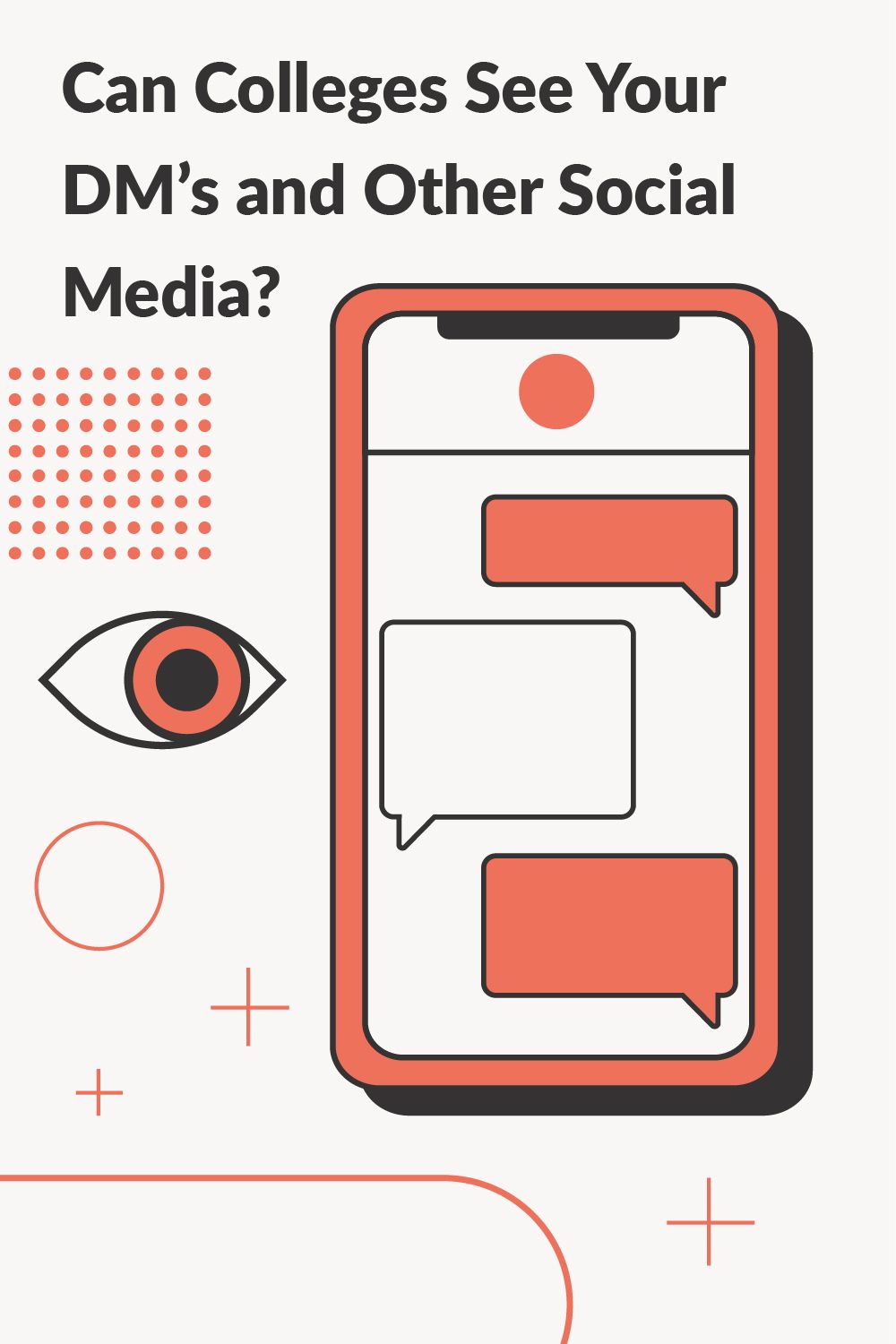
As you start applying to colleges, you may be wondering how admissions committees view your social media presence. Can they see your posts? Can colleges see your your DMs?
These are important questions to consider. Many admissions officers look at students through a holistic lens. It’s not just about your academic performance; who you are as a person matters too.
Social media can be a fun way to connect with friends. It’s also an important academic and professional tool that shapes how other people view you. As more and more decisions are made using digital filters — think dating, job applications, and, yes, even college admissions — it’s important to use social media intentionally and be aware of the ways it shapes your personal brand.
Yes, Colleges Check Your Social Media Posts
If you publish something online, it’s safe to assume anyone can see it. And many may intentionally seek your posts out, including college admissions officers. In fact, admissions officers’ attitudes toward their applicants’ social media profiles are changing rapidly. According to a 2021 survey by Kaplan, 66% of admissions officers don’t see a problem with social media being incorporated into the admissions process. That’s a 9% increase since 2018.
Even if you don’t provide your social media handles on the Common App, that won’t stop many admissions officers from seeing what you’re up to on TikTok or Instagram.
Colleges don’t have access to your DMs or your accounts if they’re set to private, but it’s still worth being cautious. While something you posted might technically be private, a connection could take a screenshot and share it.
At the end of the day, the internet is considered part of the public arena, and whatever you share on it contributes to your public persona. Once a post is out, you have little control over how it’s distributed.
If you’re concerned about colleges seeing questionable posts, it might be a good idea to start thinking about what you post and why. Setting rules for your social media usage now can pay dividends in the future.
Can Social Media Affect Admissions Decisions?
Believe it or not, schools can rescind an offer if you post questionable material on social media. This happened to at least 10 Harvard students in 2017 after they shared explicit memes in a private Facebook group. Even though the group was private, screenshots presumably made their way up to Harvard administrators, and admissions officers ultimately decided to revoke the students’ acceptance.
It’s not just college admissions officers who are patrolling social media. Other students are too. In 2020, groups of high school students began creating Google Docs and social media accounts to record and share unacceptable posts.
While social media posts aren’t necessarily a decisive factor in the college admissions process, they can be reason enough to deny a student admission. This is especially true if a student’s social media presence may generate bad publicity and damage a school’s reputation. According to a survey conducted by the American Association of Collegiate Registrars and Officers, about 79% of respondents actively monitor social media as part of the admissions process or review problematic social media brought to their attention.
Should You Delete Your Social Media Accounts?
If you’re worried that your social media presence might affect an admissions decision, you can delete your accounts. It won’t necessarily improve your chances of being admitted, but it probably won’t hurt either.
That said, there are alternative and less drastic measures you can take instead of deleting your accounts entirely:
- Take inventory of your posts. If you have any questionable content, delete those posts and set guidelines for yourself moving forward. Avoid posting content that shows you engaging in illegal activities or objectionable behavior.
- Review your privacy settings. Set your account to private and consider changing your username if you don’t want to be publicly identified with your social media content.
- Google yourself. This will make you aware of the different types of content that exist about you on the internet, aside from social media. Doing this will help you see yourself as a college admissions officer will see you when they conduct a similar search.
You Can Use Social Media To Highlight Your Strengths
While you might be worried about how colleges view your social media presence, keep in mind that you can actually use social media to improve your academic and professional prospects.
For starters, if you’re not already on LinkedIn, now would be a good time to set up an account. LinkedIn is the most popular professional networking platform. It’s not only a place to highlight your skills and achievements; it can help you make valuable connections that could lead to job opportunities after you graduate.
You can also use platforms like YouTube, TikTok, Medium, or GitHub to demonstrate your professional or academic expertise. Consider creating tutorials, writing how-to guides, or posting projects online that share knowledge of subjects you’re passionate about. These platforms can become a digital portfolio that you can add to a future college or job application.
Last but not least, if you are hoping to pursue a career that uses social media, start curating content to showcase your aptitude. You might even be able to use your social media know-how to launch a lucrative side hustle or land an internship while you’re still in school.
Bottom Line
For better or for worse, our social media activities help define our public image. While it’s a good idea to pay attention to how your social media presence can impact college admissions decisions, the influence that social media will have on your life won’t stop there. Employers also keep an eye on how you present yourself online, so your digital footprint will continue to follow you wherever you go, even after you graduate.
While the prospect of colleges monitoring your social posts might give you anxiety, social media is also an opportunity for you to highlight your strengths. You can use it to shape the narrative of your life and how you’d like others to see you. Be intentional about what you post, and curate content that shows you in the best light.

Amanda Claypool is a writer, entrepreneur, and strategy consultant. She’s lived in the Middle East, Washington, DC, and a 2014 Subaru Outback but now calls Asheville home. Amanda writes about money, crypto, emerging tech, and the future of the economy on Medium.
Editor: Ashley Barnett Reviewed by: Robert Farrington
